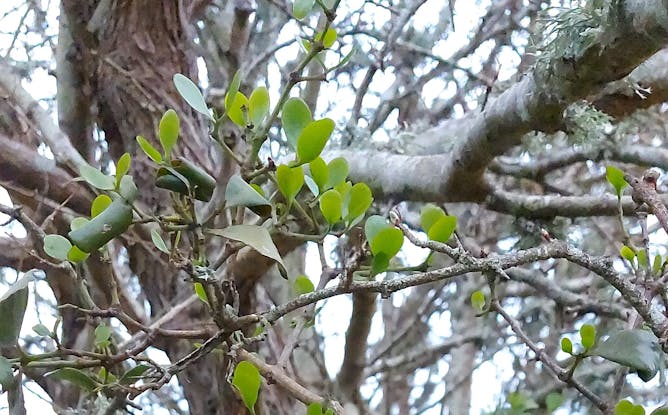|
With Israel and Hezbollah both claiming “success” after striking one another over the weekend, an all-out war in the Middle East has again been averted.
But the region remains on edge. Hezbollah is believed to be able to launch 3,000 missiles a day. And as one politician told the ABC’s Four Corners last night, if Hezbollah can fly surveillance drones over Israeli military sites, it can also strike them.
As Ian Parmeter writes, the threat of a wider war now hinges on what Iran decides to do. Some forces inside the country are pushing for a strong response to Israel, while others are seeking moderation.
A ceasefire in Gaza could also bring an end to all of these hostilities. But given the obstacles that remain, this doesn’t appear likely any time soon.
|

|
Justin Bergman
International Affairs Editor
|
|

Ian Parmeter, Australian National University
Both sides have stepped back from the precipice of all-out war, but this doesn’t mean the danger is over.
|

Mark Beeson, University of Technology Sydney
The lack of debate, not to say outrage, about the sheer cost of the AUKUS project is perhaps the most remarkable feature of the sorry submarine saga.
|

Timothy Koskie, University of Sydney
If Pavel Durov is successfully prosecuted, it could lay the groundwork for further legal action against larger tech companies.
|

Andrew Taylor, Charles Darwin University; Supriya Mathew, Charles Darwin University
For decades it seemed as if nothing could change the trajectory of population growth. But a huge change is looming.
|

Elizabeth Westrupp, Deakin University; Christiane Kehoe, The University of Melbourne; Gabriella King, Deakin University
There are developmental reasons for children being messy. But there are ways to encourage your child to look after their rooms without stressful conflict.
|

Lucie Newsome, University of New England; Alison Sheridan, University of New England; Andrew Lawson, University of New England
Women – and daughters-in-law in particular – are often seen as a threat to the continuity of the family farm, and tactically excluded from succession plans.
|

Theresa Fruth, University of Sydney
The latest results from the LZ dark matter experiment have drawn a blank – but the elusive particles are running out of places to hide.
|

Emily Burch, Southern Cross University; Lauren Ball, The University of Queensland
Type 1.5 diabetes has features of both type 1 and type 2 diabetes.
|

Janice Lord, University of Otago; James Crofts-Bennett, University of Otago
The benefits of leafy mistletoes for wintering arthropods include shelter from extreme weather and hungry birds as well as a more humid microclimate to avoid desiccation.
|

Claire Nicholls, University of Southern Queensland
Next time you see someone at the back of the orchestra with their many percussion instruments, take a moment to thank these masters of rhythm and timbre as part of the music you love.
|
Politics + Society
|
-
Vivian Gerrand, Deakin University
Exposure to extreme content does not guarantee radicalisation. Extremist messaging is most effective when it taps into real and perceived grievances young people may be experiencing.
|
|
Health + Medicine
|
-
Emma Beckett, UNSW Sydney
Public health resources often recommend brown rice instead of white as a ‘healthy swap’. But what if you prefer white rice?
-
Karen Canfell, University of Sydney; Deborah Bateson, University of Sydney; Megan Smith, University of Sydney
If you’re aged 25 to 74, you might be due for a cervical cancer screening test. Here’s what to expect – and what’s changed in recent years.
|
|
Science + Technology
|
-
Katharine Kemp, UNSW Sydney
Most Australians have had a negative experience when trying to cancel a subscription. It’s bad business, and we need law reform to capture these shady tactics.
|
|
Environment + Energy
|
-
John Quiggin, The University of Queensland
The researchers found most emissions reduction relied on a mix of policies, rather than a single solution.
-
Jamie Wood, University of Adelaide; Amy Martin, University of Auckland, Waipapa Taumata Rau; Anne Gaskett, University of Auckland, Waipapa Taumata Rau
With no land mammals to eat and disperse them, New Zealand’s truffle-like fungi mimic fallen fruit to attract birds. But with so many of those birds now extinct, can ecosystems adapt?
|
|
Education
|
-
James Pengelley, Murdoch University; Anabela Malpique, Edith Cowan University; Nina Rovis-Hermann, Murdoch University
Our two recent studies suggest the way students respond to test questions on computers may not be the same as on paper.
|
|
Arts + Culture
|
-
Jacqueline Burgess, University of the Sunshine Coast
China could be considered the sleeping lion awakening in the global gaming industry. And there’s plenty of ‘soft power’ to be exerted through its ventures.
|
|
Books + Ideas
|
-
Sreedhevi Iyer, RMIT University
Literary discourse requires authors of colour to produce “authentic” narratives. They are then required to embody this “authenticity” when presenting themselves in public.
|
|
Business + Economy
|
-
Laurence McCook, James Cook University; Rashid Sumaila, University of British Columbia
Estimates of the economic value of the Great Barrier Reef range from $21 billion to $56 billion, but its true value is almost certainly higher.
|
|
| |
|
|
|
Auckland University of Technology
Auckland, New Zealand
•
Contract
|

|
|
|
|
| |
| |

|
| |
| |
| |
Featured Events, Courses & Podcasts
|
View all
|
|
27 August 2024
•
Auckland CBD
|

|
|
|

|
2 - 6 September 2024
•
Carlton
|

|
13 September 2024
•
Sydney
|

|
|
|
|
| |
| |
| |
| |
| |
|
|